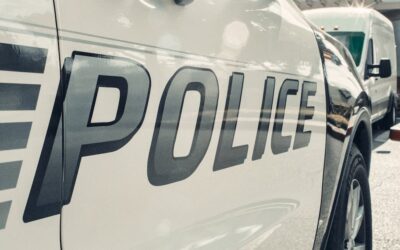Oregon governor signs a bill recriminalizing drug possession into law
On April 1, 2024, Oregon Governor Tina Kotek signed House Bill 4002 into law, effectively recriminalizing the possession of small amounts of certain controlled substances. This legislation marks a significant shift in Oregon’s drug policy, reversing a key provision of Ballot Measure 110 passed by voters in 2020. Measure 110 decriminalized possession of illicit drugs like heroin, cocaine, and methamphetamine, making them civil violations punishable by a fine only.
In a signing letter, Kotek said the law’s success will depend on “deep coordination” between courts, police, prosecutors, defense attorneys and local mental health providers, describing them as “necessary partners to achieve the vision for this legislation.”
House Bill 4002: Key Provisions
- Recriminalization: Possession of controlled substances in usable quantities for personal consumption becomes a Class A misdemeanor, punishable by up to six months in jail, a fine of up to $3,600, or both.
- Treatment Emphasis: The bill allocates new funding for substance abuse treatment programs. Law enforcement agencies are encouraged to create deflection programs that divert individuals caught with drugs towards treatment options instead of prosecution.
- Implementation Timeline: The recriminalization provisions take effect on September 1, 2024.
Background: The Decriminalization Experiment
Measure 110, approved with over 58% of the vote, aimed to address the state’s addiction crisis by shifting focus from punishment to treatment. However, implementation issues arose. Limited treatment resources hampered the program’s effectiveness, and concerns emerged regarding increased public drug use and public safety.
Arguments for Recriminalization
Proponents of House Bill 4002 argue that decriminalization failed to deliver on its promises. They cite:
- Inadequate Treatment Infrastructure: The lack of readily available treatment options rendered the decriminalization policy ineffective in addressing addiction.
- Public Safety Concerns: Increased reports of public drug use and associated criminal activity fueled arguments for stricter enforcement.
- Unintended Consequences: Critics argued decriminalization normalized drug use and discouraged individuals from seeking help.
Arguments Against Recriminalization
Opponents of the bill express concerns that it represents a step backward in drug policy reform. They argue:
- The Criminal Justice System is Ineffective: They believe criminalization disproportionately impacts low-income communities and people of color, hindering access to treatment.
- Focus on Treatment, Not Incarceration: Opponents advocate for increased investment in treatment programs over incarceration, which they view as counterproductive.
- Limited Bill Impact: Critics argue the bill’s treatment funding is insufficient and may not effectively address the root causes of addiction.
The Road Ahead
House Bill 4002 represents a compromise approach, attempting to balance public safety concerns with treatment availability. The success of this legislation hinges on several factors, including:
- Effective Implementation: Establishing accessible, well-funded treatment programs is crucial to diverting individuals from the criminal justice system.
- Police Discretion: Law enforcement agencies will need clear guidelines on implementing the deflection programs and how to interact with individuals struggling with addiction.
- Data Collection and Analysis: Monitoring the program’s impact on public safety, treatment utilization, and recidivism rates will be essential for evaluating its effectiveness.
Oregon’s policy shift reflects the ongoing national debate on drug policy reform. The coming months will be crucial in determining whether House Bill 4002 offers a viable solution to the state’s addiction crisis.
Real Questions from Real Calls
Question: I think I found a bag with some Fentynal in my yard??
Answer: Get far away and call the police. Even though we battle the police in a court of law there is still a need for them. Unless you want to pick it up and find out.
In 2023 the overdose death rate topped 112,000 in a 12 month period for the first time, according to the Centers for Disease Control and Prevention. Dec 28, 2023 (Still left out 3 days)
Related Articles
Michigan Marijuana Sales Surpassed $3 Billion In 2023
In 2023 according to sources on the internet the Michigan lottery made 46 million , liquor taxes made $31.5 billion this year, a slight increase from previous projections but close to $400 million less than the previous year. Marijuana about 3 billion. Michigan's...
Whitmer signs bill stripping gun rights for non-violent offenders
Gov. Gretchen Whitmer proudly showcases a crucial bipartisan gun violence bill package that she recently signed into law, underscoring her unwavering dedication to safeguarding the lives of those vulnerable to domestic violence. This essential measure reflects the...
More Posts
The US Supreme Court and Federal Gun Law Cases
The US Supreme Court and Federal Gun Law CasesChallenges to Federal Gun Laws the right of the people to keep and bear Arms, shall not be infringed Updated July 8, 2024...
Do Passengers in a Vehicle have 4th Amendment Rights?
Do Passengers have 4th Amendment Rights?Michigan Supreme Court Limits Police Ability to Search Passenger Property in CarsBackground Mead was a passenger in a car and...
Michigan Appeals Court Decision on Cannabis Use and Probation
Michigan Court of Appeals - Recreational Cannabis Use and ProbationRecently, another pivotal case, People v. Lopez-Hernandez, was decided by the Michigan Court of...
Do Students Have 4th Amendment Rights in Schools
Students and 4th Amendment RightsStudents are entitled to a right to be safe from unreasonable searches and seizures even within school premises, as ruled by the...
Forfeiture Law: SCOTUS and Sixth Circuit Issue Landmark Rulings
Forfeiture Law in Focus: SCOTUS and Sixth Circuit Issue Landmark RulingsThe landscape of forfeiture law has been significantly shaped by recent decisions from the U.S....
When Can Your Silence Be Used Against You in a Legal Situation?
US Supreme Court - Salinas v. TexasWhen Can Silence Be Used Against You? In the realm of criminal law, the Fifth Amendment to the United States Constitution grants...
Supreme Court 8-1 Gun Possession Decision Changes Second Amendment
Supreme Court 8-1 Gun Possession Decision Changes Second Amendment Landscape Forever!Issue: Whether 18 U.S.C. 922(g)(1), the federal statute that prohibits a person...
Facial Recognition and Wrongful Arrests
Facial RecognitionHow Technology Can Lead to Mistaken-Identity Arrests Facial recognition technology has become increasingly prevalent in law enforcement, but its use...
People v. Chandler Case: Protecting Fourth Amendment Rights
Court of Appeals of Michigan PEOPLE of the State of Michigan, Plaintiff-Appellee, v. Javarian CHANDLER, Defendant-Appellant. No. 368736 Decided: June 27, 2024Before:...
What are Miranda Rights?
What are Miranda Rights?Miranda Rights, also known as the Miranda warning, are the rights given to people in the United States upon arrest. “You have the right to...




















